AZERBAIJAN – COUNCIL OF EUROPE
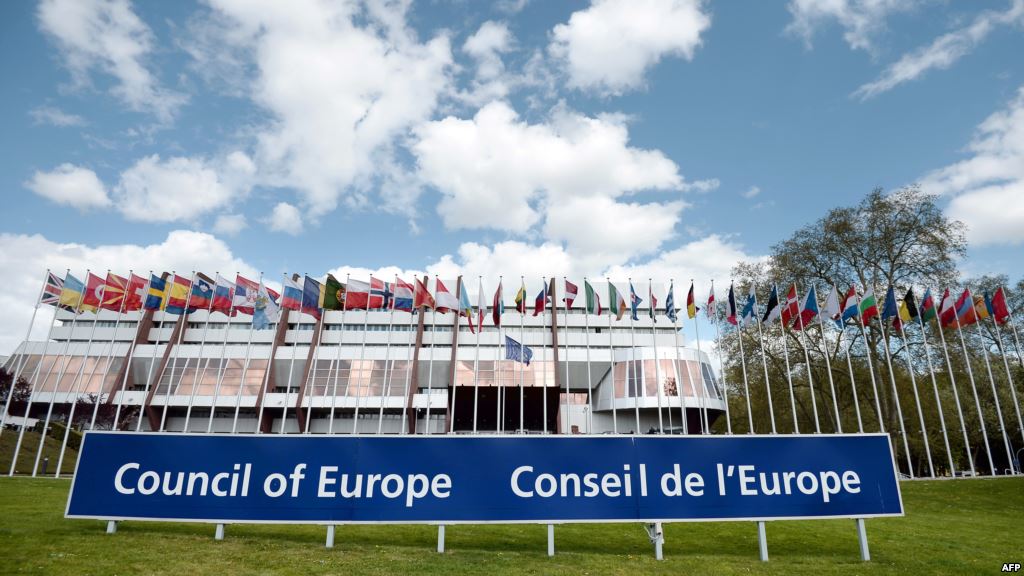
The history of relations between Azerbaijan and the Council of Europe began in 1992. On January 24, 1992, the parliament of the Republic of Azerbaijan applied to the Council of Europe to get the status of “specially invited guest”.
In February 1995, PACE Bureau initiated the consideration of Azerbaijan’s appeal to obtain the status of “specially invited guest” in accordance with recommendation 1247 (1994), which provides for the right of three South Caucasus states to apply for admission to the Council of Europe.
On March 17-18, 1996, at the meeting of the European Commission for democracy by the law of the Council of Europe (Venice Commission), Azerbaijan was admitted to the commission as a member. In June 1996, taking into account the efforts of Azerbaijan toward building a Democratic state, PACE Bureau adopted a decision to grant the country the status of “specially invited guest”.
On September 11, 1996, at the 573rd meeting of the Council of Ministers of the Council of Europe, resolution (96) 32 was adopted, providing assistance in the form of cooperation programs, intensifying negotiations with the authorities of Azerbaijan in order to accelerate the transition to democracy in Azerbaijan. The admission of our country to this organization was made possible thanks to the consistent and purposeful policy of our national leader Heydar Aliyev. It was on his initiative that a moratorium was imposed on the death penalty in Azerbaijan in 1993 and abolished in 1998. The abolition of the death penalty and the humanization of the penal policy have been the important factors ensuring Azerbaijan’s accession to the European family.
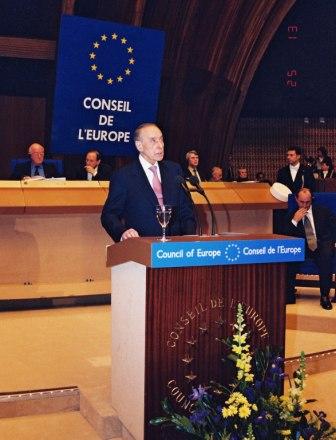
President of the Republic of Azerbaijan Heydar Aliyev signed decrees “on measures to implement the cooperation program between the Council of Europe and the Republic of Azerbaijan” dated July 8, 1996, “On measures to deepen cooperation between the Republic of Azerbaijan and the Council of Europe and protect the interests of the Republic of Azerbaijan in Europe” dated January 20, 1998. “On measures to deepen cooperation between The Republic of Azerbaijan and the Council of Europe and the protection of the interests of the Republic of Azerbaijan.
In 1997, during the spring session of the PACE held on April 22, the inviolability of borders in connection with the South Caucasus conflicts, ensuring security in the conflict zones with the mediation of the international peace Guard forces, after the negotiations between all the parties, resolution 1119 (1997) was adopted, which reflected the principles of wide autonomy for Abkhazia and Nagorno-Karabakh, the right of refugees and IDPs to return to their homes.
On June 26-28, 2000, the next session of the PACE was held; in the voting with the participation of 126 deputies, 120 people in favor, 1 against, and 5 abstentions, a positive opinion was given on the admission of the Republic of Azerbaijan to the full membership of the Council of Europe.
On January 17, 2001, at the meeting of the Committee of Ministers of the Council of Europe at the level of Representatives, a decision was made on the admission of the Republic of Azerbaijan to the Council of Europe as a full member.
In his historic speech at the Parliamentary Assembly of the Council of Europe in Strasbourg on January 25, 2001, Heydar Aliyev defined the main directions of mutual relations between the organization and our country.
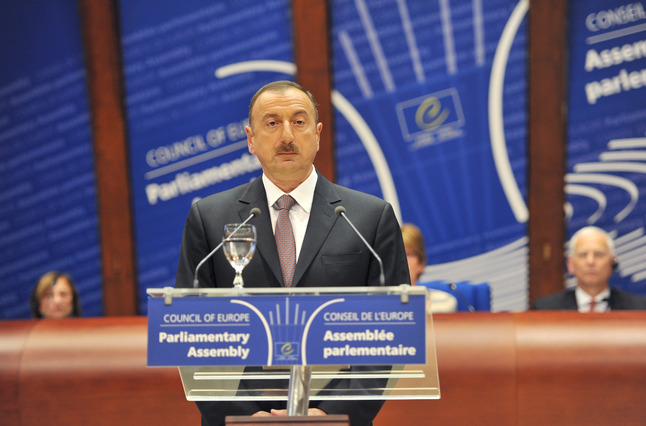
In 2001-2003, as a result of the initiative and diplomatic activity of Mr. Ilham Aliyev, the head of the delegation representing Azerbaijan in PACE, since the first session, documents reflecting the truth about the Armenia-Azerbaijan, Nagorno-Karabakh conflict began to spread. In April 2001, at the spring session of PACE, the European MPs were informed about the expansion of drug trafficking in the occupied territories of Azerbaijan and the development of terrorism. It was after such a decisive position that PACE had a more serious turn in relation to the Nagorno-Karabakh conflict. British Deputy Terry Davis was appointed PACE rapporteur on Nagorno-Karabakh at the session. Although Armenia opposed the appointment of a PACE rapporteur on the Nagorno-Karabakh conflict, the principled position of the Azerbaijani delegation resulted in the failure to pay any attention to the Armenian protest.
During the session, the proposal for the written statement “recognition of the genocide committed by Armenians against the Azerbaijani population” was signed by 9 delegates representing 5 countries and 29 political groups operating in PACE, and the recommendation “prisoners of war and hostages held in Armenia and Nagorno-Karabakh” signed by 14 representatives of 20 countries were spread as official documents of PACE. The documents highlighted the complete killing of the Khojaly population by Armenians, the occupation of 20 percent of Azerbaijan’s territory by Armenia, and the fact of holding 783 Azerbaijanis, including children, women, and elderly people in Armenia and occupied Azerbaijani lands, and other important issues.
The Republic of Azerbaijan submitted to the Depository the document of ratification of the European Convention on Human Rights and its protocols on April 15, 2002, and from that day the Convention and its protocols entered into force in relation to Azerbaijan.
Adopted in January 2005,25, Resolution No.1416 was one of the important steps taken to resolve the Armenia-Azerbaijan, Nagorno-Karabakh conflict. The resolution stated: “the Parliamentary Assembly regrets that the conflict over the Nagorno-Karabakh region remains unresolved, despite the fact that more than ten years have passed since the beginning of the armed operations. Hundreds of thousands of people and living in terrible conditions. A significant part of the territory of Azerbaijan is still occupied by Armenian forces, and separatist forces still control Nagorno-Karabakh.” As a continuation of this process in January 2006, the report prepared by the late lord Russell Johnston at the next meeting of the PACE Subcommittee on the Nagorno-Karabakh problem in Strasbourg on 9 January, occupation of Azerbaijani territories, separatism of the Nagorno-Karabakh regime, exile of one million Azerbaijanis from their native lands, etc. the facts are reflected.
Nevertheless, the subcommittee on the Nagorno-Karabakh conflict, established under Resolution 1416 of the Parliamentary Assembly of the Council of Europe, actually ceased its activities due to the non-constructive position of the Armenian delegation.
During the summer session of PACE held in June 2008, on June 25, Resolution No. 1614 was adopted in connection with Azerbaijan. Particularly noteworthy in the resolution was that parts of the Nagorno-Karabakh conflict were in the interests of our country. Thus, the resolution, emphasizing that until the restoration of the territorial integrity of Azerbaijan, sustainable democratic development will go with great difficulty, referred to the resolution “The situation in the occupied territories of Azerbaijan” adopted by the UN General Assembly on March 14, 2018, which emphasizes respect for the territorial integrity of Azerbaijan, its internationally recognized borders and demanded the immediate withdrawal of Armenian forces from the occupied territories of Azerbaijan.
Baku hosts many events of the Council of Europe. The conference of Culture Ministers of member states on the theme “intercultural dialogues is the basis of sustainable development and peace in Europe and its neighboring regions” is also of great importance.
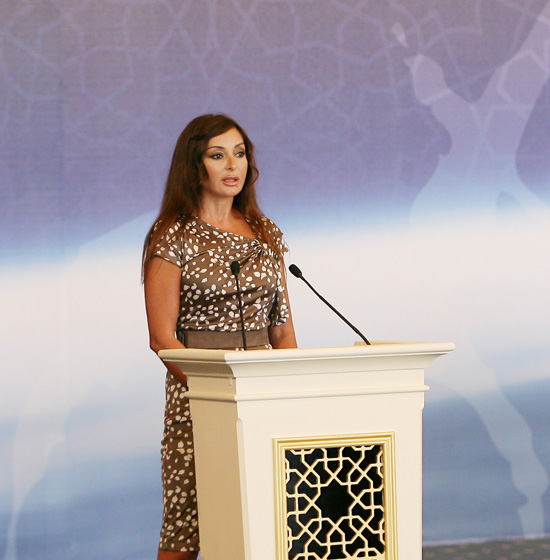 In this regard, the VII Conference of Ministers of the Council of Europe responsible for Equality between Women and Men, held on May 25, 2010, in Baku on the theme “gender equality: ensuring de jure and de facto equality”, is noteworthy. First Lady of Azerbaijan, UNESCO, and ISESCO goodwill ambassador Mehriban Aliyeva attended the conference.
In this regard, the VII Conference of Ministers of the Council of Europe responsible for Equality between Women and Men, held on May 25, 2010, in Baku on the theme “gender equality: ensuring de jure and de facto equality”, is noteworthy. First Lady of Azerbaijan, UNESCO, and ISESCO goodwill ambassador Mehriban Aliyeva attended the conference.
On January 2011, 26, an official reception was held in the building of the Council of Europe on the occasion of the 10th anniversary of our country’s membership in the Council of Europe. The event was attended by high-ranking officials from both Azerbaijan and the Council of Europe. At the meeting of the PACE Bureau held on January 2011, 28, a decision was made to resume the activity of the PACE ad-hoc Committee on Nagorno-Karabakh. Despite the efforts of the Armenian delegation to PACE against the continuation of the committee’s activities, the decision to establish it was unanimously adopted by the PACE Bureau (with the exception of the Armenian delegation).
On May 2014, 6, at the 24th session of the Committee of Ministers of the Council of Europe, he chaired the committee of Ministers of the Council of Europe from Austria to Azerbaijan. On June 2014, 24, the president of the Republic of Azerbaijan Ilham Aliyev made a speech at the summer session of the Parliamentary Assembly of the Council of Europe.
In 2014, the Council of Europe’s Action Plan for Azerbaijan for 2014-2016 was approved. Within the Action Plan, which is considered an important document of cooperation between the Council of Europe and Azerbaijan, many projects and events in various fields have been implemented.
Under the chairmanship of Azerbaijan, the Government of Azerbaijan and the Council of Europe held a high-level international conference on “Combating Corruption: international standards and national practices “in Baku with the participation of the Council of Europe group of states fighting corruption (GRECO) and the International Anti-Corruption Academy ( IACA).
On November 2015, 23, the text of the resolution “residents of the border regions of Azerbaijan are deliberately deprived of Water” proposed by Milica Markovic from the Socialist group of Bosnia and Herzegovina was adopted at the January 2016 session of PACE. The resolution reflected the dependence of the regions located in the frontline regions of Azerbaijan on the water supply of the Sarsang water reservoir in Nagorno-Karabakh and the fact that the population in the entire frontline faces environmental and humanitarian problems, as well as security risks. At the same time, the resolution demanded the withdrawal of Armenian occupying forces from the territories of Azerbaijan in order to investigate and eliminate water supply problems. However, despite the adoption by the Council of Europe of many resolutions in this context, none of them was implemented by Armenia.
Another document confirming the occupation of Azerbaijani lands by the Armenian Armed Forces was the resolution 2017 (24) “attacks on freedom of journalists and media in Europe” adopted by PACE on January 2141, 2017. The resolution stated that as the Nagorno-Karabakh territory of Azerbaijan is under the control of the separatist regime, according to Article 10 of the European Convention on Human Rights, there is no control over freedom of the media.
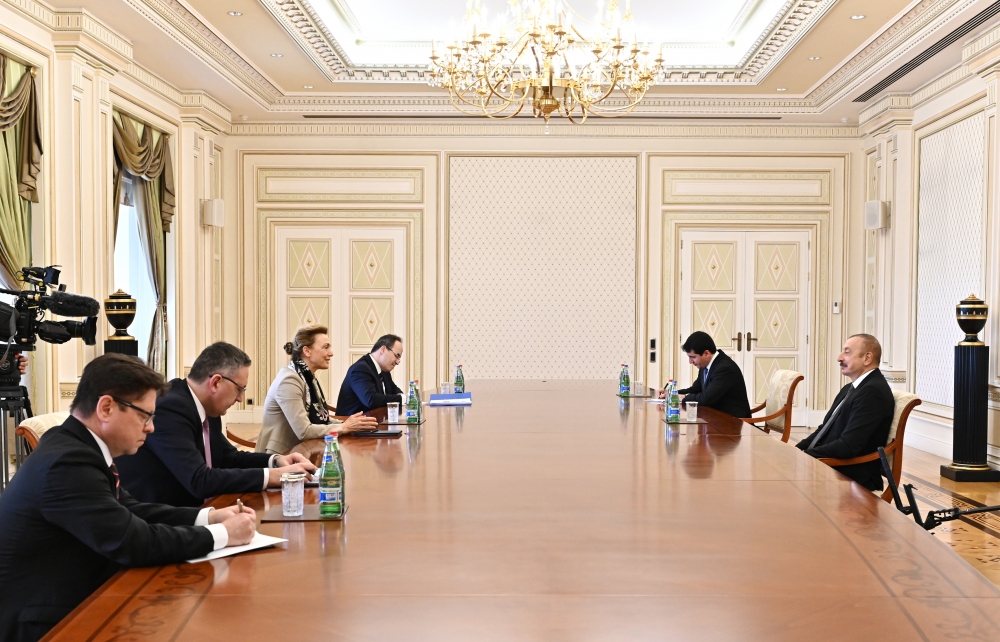 The next Action Plan for 2018-2021 was approved by the committee of representatives of the Council of Europe in October 2018 as a result of consultations between the Azerbaijani side and the Council of Europe. According to the Action Plan, the projects covered the effectiveness of the justice system, reforms in the penitentiary sphere, and the fight against money laundering.
The next Action Plan for 2018-2021 was approved by the committee of representatives of the Council of Europe in October 2018 as a result of consultations between the Azerbaijani side and the Council of Europe. According to the Action Plan, the projects covered the effectiveness of the justice system, reforms in the penitentiary sphere, and the fight against money laundering.
On November 23, 2020, Council of Europe Secretary-General Maria Peychinovich Buric said in response to the letter of Azerbaijani Foreign Minister Jeyhun Bayramov that he welcomed the 2020 ceasefire agreement dated November 10 and said he would continue to monitor the situation related to the implementation of the agreement.
President of the Republic of Azerbaijan Ilham Aliyev said that on April 2022, 4, when receiving a delegation led by Secretary-General of the Council of Europe Maria Peychinovich Buric, the program of action between Azerbaijan and the Council of Europe covering the years 2022-2025 will be adopted. Maira Peychinovich Buric said that the Council of Europe is ready to play the role of a platform in normalizing relations between Armenia and Azerbaijan and building trust between the two countries' societies.
At present, the Republic of Azerbaijan is a participant in more than 60 international conventions adopted by the Council of Europe. The delegation of the Milli Majlis of the Republic of Azerbaijan to PACE consists of 6 active and 6 substitute members, in general, 12 members. The delegation put forward initiatives that serve the interests and interests of Azerbaijan in accordance with the agenda of the session and actively participates in discussions on relevant documents.



